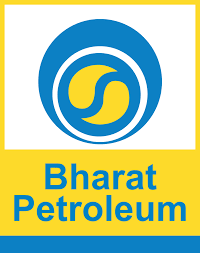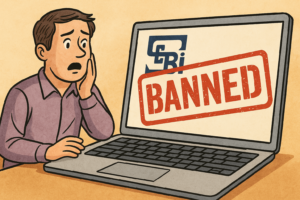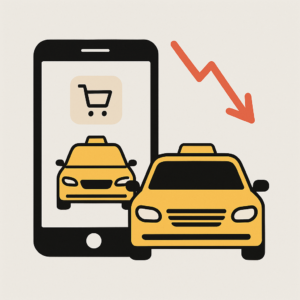In this article, we explore the BPCL Business Model to explain and understand how the Business Model of Bharat Petroleum is structured and to learn about how Bharat Petroleum makes money.
Bharat Petroleum Corporation Limited (BPCL) is a leading public sector undertaking in India, engaged in the business of refining, marketing, and distributing petroleum products. The company has a strong market presence and is ranked among the top Fortune 500 companies. Founded in 1952, it has grown into a major player in the Indian energy sector, with a significant network of retail outlets, refineries, and marketing infrastructure.
In this blog post, we will delve deep into the business model of Bharat Petroleum, utilizing the Business Model Canvas developed by Alexander Osterwalder. The canvas breaks down the essential aspects of a business model into nine building blocks, providing a comprehensive framework for understanding and analyzing a business.
Before we dive into the analysis, let’s first understand the company’s origins and the story of how and why it was started.
- The History of Bharat Petroleum
The journey of Bharat Petroleum began in the early 20th century when it was established as Rangoon Oil and Exploration Company in 1928. After the nationalization of Burmah Oil Company’s assets in India by the government in 1976, it was renamed Bharat Refineries Limited. In 1977, the company was rechristened Bharat Petroleum Corporation Limited (BPCL) and became a government-owned corporation.
BPCL’s growth was driven by the rising demand for petroleum products in India and the government’s vision to create a self-sufficient energy sector. The company has played a significant role in contributing to the country’s development and progress by providing reliable access to energy resources.
Now that we have a brief understanding of the company’s history let’s analyze its business model using Alexander Osterwalder’s Business Model Canvas.
- Business Model Canvas of Bharat Petroleum
2.1. Customer Segments
BPCL serves a diverse range of customer segments, including individual consumers, industries, commercial establishments, and government entities. Key customer segments include:
a. Individual Consumers: BPCL operates a vast network of retail outlets across India, catering to the fuel requirements of individual consumers. The company offers petrol, diesel, and compressed natural gas (CNG) at its outlets, ensuring that it meets the diverse energy needs of its customers.
b. Industrial and Commercial Customers: BPCL supplies petroleum products to various industries and commercial establishments such as manufacturing, construction, transportation, and power generation. The company also offers lubricants and specialty products for specific industry applications.
c. Government Entities: BPCL plays a critical role in supporting the energy requirements of the Indian government, including the defense sector, and various state-owned enterprises.
d. International Markets: The company exports petroleum products to various countries, further diversifying its customer base and revenue sources.
2.2. Value Proposition
BPCL’s value proposition revolves around the following key aspects:
a. Extensive Network: BPCL has a robust distribution network, with over 17,000 retail outlets across India. This ensures easy accessibility of its products for customers, providing them with a convenient and reliable fueling experience.
b. Quality and Consistency: BPCL is known for its consistent delivery of high-quality petroleum products that meet stringent industry standards. The company’s refineries are equipped with advanced technology and systems to ensure product quality and operational efficiency.
c. Diversified Product Offerings: BPCL’s portfolio comprises a wide range of petroleum products, including petrol, diesel, aviation turbine fuel, kerosene, LPG, lubricants, and specialty chemicals. This enables the company to cater to the diverse energy requirements of its customer segments.
d. Customer-centric Approach: BPCL places significant emphasis on understanding and addressing the evolving needs of its customers.
e. Innovation and Sustainability: The company invests in research and development to develop innovative products and solutions that cater to the changing market dynamics. BPCL is also committed to sustainable practices, ensuring that its operations are environmentally responsible and aligned with global sustainability goals.
f. Strong Brand Equity: Over the years, BPCL has built a strong brand reputation, synonymous with quality, reliability, and customer service. This has helped the company gain the trust and loyalty of its customers.
2.3. Channels
BPCL employs multiple channels to reach its customers and deliver its products and services. These channels include:
a. Retail Outlets: BPCL’s extensive network of retail outlets is its primary channel for reaching individual consumers. The company has a presence in both urban and rural areas, ensuring widespread accessibility of its products.
b. Direct Sales: BPCL also engages in direct sales to its industrial, commercial, and government customers. This includes bulk sales of petroleum products, lubricants, and specialty chemicals.
c. Distributors and Dealers: BPCL works with a network of distributors and dealers to further expand its reach and serve its customers more effectively.
d. Digital Platforms: The company leverages digital platforms to enhance customer experience and improve accessibility. Customers can use the company’s mobile app and website to locate nearby retail outlets, access information about products and services, and make payments.
2.4. Customer Relationships
BPCL maintains strong customer relationships by focusing on providing exceptional service and addressing customer needs. Key aspects of the company’s customer relationship strategy include:
a. Personalized Service: BPCL invests in training and development of its employees to ensure that they deliver personalized service at its retail outlets. The company also offers loyalty programs and value-added services to enhance customer experience.
b. Customer Support: BPCL provides dedicated customer support through its call centers and online platforms to address customer queries, complaints, and feedback.
c. Community Engagement: The company engages with local communities through various initiatives and programs aimed at improving the quality of life and promoting sustainable development.
2.5. Key Activities
BPCL’s key activities revolve around refining, marketing, and distributing petroleum products. These include:
a. Exploration and Production: BPCL participates in upstream activities, including exploration, production, and development of oil and gas resources.
b. Refining: The company operates refineries that convert crude oil into various petroleum products such as petrol, diesel, aviation turbine fuel, and LPG.
c. Marketing and Distribution: BPCL markets and distributes its products through its extensive network of retail outlets, direct sales, and distributors.
d. Research and Development: The company invests in R&D to develop new products, improve operational efficiency, and adopt sustainable practices.
e. Regulatory Compliance: BPCL ensures compliance with regulatory requirements and industry standards, which is critical to maintaining its reputation and securing its market position.
2.6. Key Resources
BPCL’s key resources include:
a. Physical Assets: The company’s physical assets include refineries, retail outlets, pipelines, terminals, storage facilities, and transportation infrastructure.
b. Intellectual Property: BPCL’s intellectual property comprises proprietary technology, patents, and trademarks that give it a competitive edge in the market.
c. Human Resources: BPCL’s skilled workforce, including engineers, technicians, marketing professionals, and support staff, is essential to its operations and success.
d. Financial Resources: The company’s strong financial position, supported by its government ownership, enables it to invest in growth and expansion initiatives.
2.7. Key Partners
BPCL’s key partners include:
a. Suppliers: The company works closely with its suppliers to source crude oil, natural gas, and other raw materials required for its refining operations.
b. Technology Providers: BPCL collaborates with technology providers to adopt advanced technologies that enhance its refining processes, improve efficiency, and reduce environmental impact.
c. Joint Ventures and Alliances: BPCL forms strategic alliances and joint ventures with other companies in the energy sector to share resources, expertise, and risks. These partnerships enable the company to expand its market presence and strengthen its competitive position.
d. Government and Regulatory Bodies: As a government-owned corporation, BPCL works closely with various government entities and regulatory bodies to ensure compliance with industry regulations and contribute to the country’s energy security objectives.
e. Research and Academic Institutions: BPCL collaborates with research institutions and academia to support research and development initiatives and promote innovation in the energy sector.
2.8. Cost Structure
BPCL’s cost structure primarily comprises the following:
a. Raw Material Costs: The cost of procuring crude oil and other raw materials constitutes a significant portion of the company’s expenses.
b. Operational Expenses: These include the costs associated with refining, marketing, and distributing petroleum products, such as labor, utilities, transportation, and maintenance.
c. Research and Development Expenses: BPCL invests in R&D to develop new products and technologies, which contribute to its cost structure.
d. Regulatory and Compliance Costs: The company incurs costs related to regulatory compliance, including environmental protection and safety measures.
e. Financial Costs: BPCL’s financial costs include interest on borrowings and other financial obligations.
2.9. Revenue Streams
BPCL’s revenue streams are primarily derived from the sale of petroleum products, including:
a. Retail Sales: The company generates revenue from the sale of petrol, diesel, and CNG through its network of retail outlets.
b. Industrial and Commercial Sales: BPCL earns revenue from the sale of petroleum products, lubricants, and specialty chemicals to its industrial and commercial customers.
c. Government Sales: The company supplies petroleum products to various government entities, generating revenue from these sales.
d. International Sales: BPCL exports petroleum products to other countries, contributing to its revenue streams.
Bharat Petroleum Corporation Limited is a prominent player in the Indian energy sector, with a strong presence across the value chain. Utilizing Alexander Osterwalder’s Business Model Canvas, we have analyzed the company’s business model, covering its customer segments, value proposition, channels, customer relationships, key activities, key resources, key partners, cost structure, and revenue streams.
BPCL’s success can be attributed to its extensive network, diversified product offerings, strong brand equity, and customer-centric approach. The company is well-positioned to capitalize on the growing demand for energy in India and contribute to the country’s energy security objectives.
In a rapidly changing market landscape, BPCL’s focus on innovation and sustainability, coupled with its commitment to operational excellence and customer service, will continue to drive its growth and success in the years to come.
Did you know? Corporate teams like to use our co-working space in Bangalore.
Learn more about our coworking space on our YouTube channel Work Theater Studios where we talk about a variety of topics including personal finance, entrepreneurship, business and life.
Did you know? We also have a private theatre in Bangalore.




